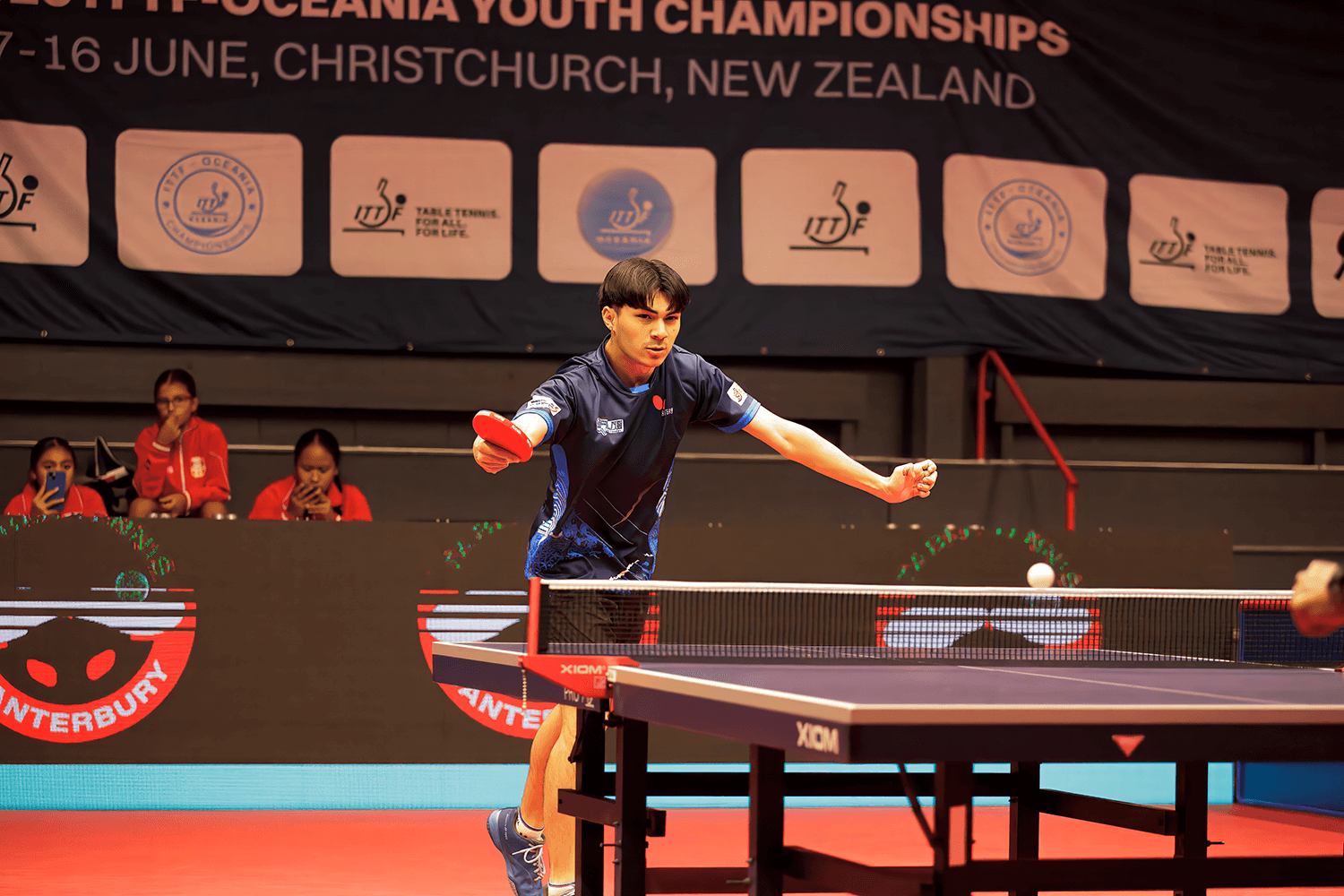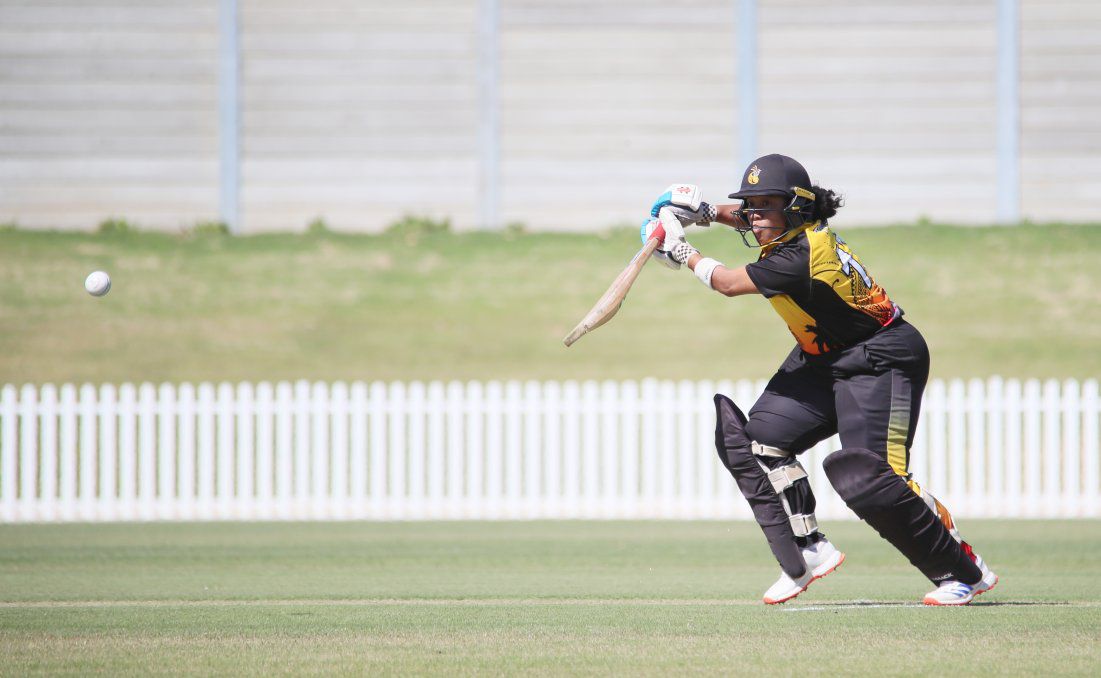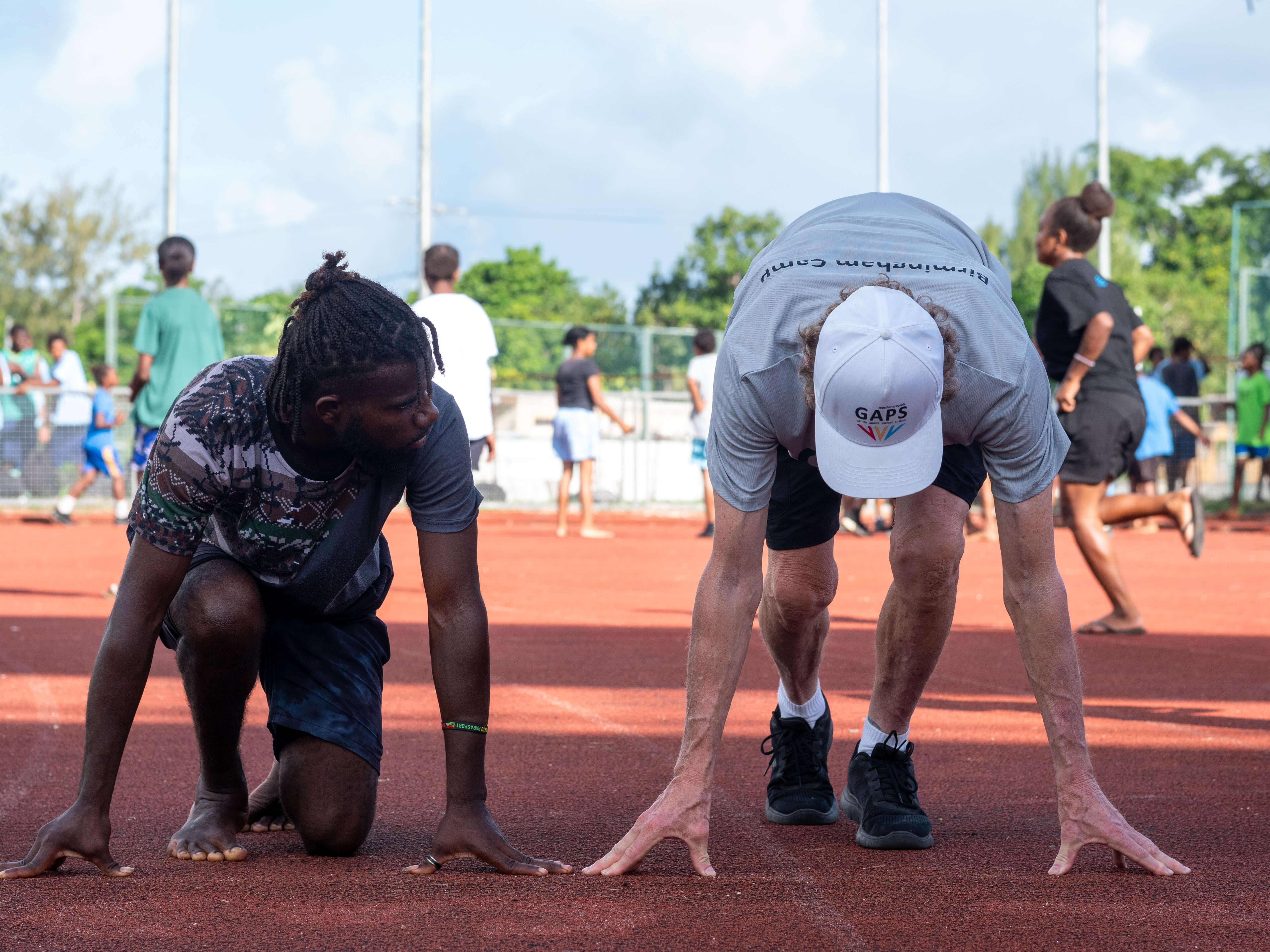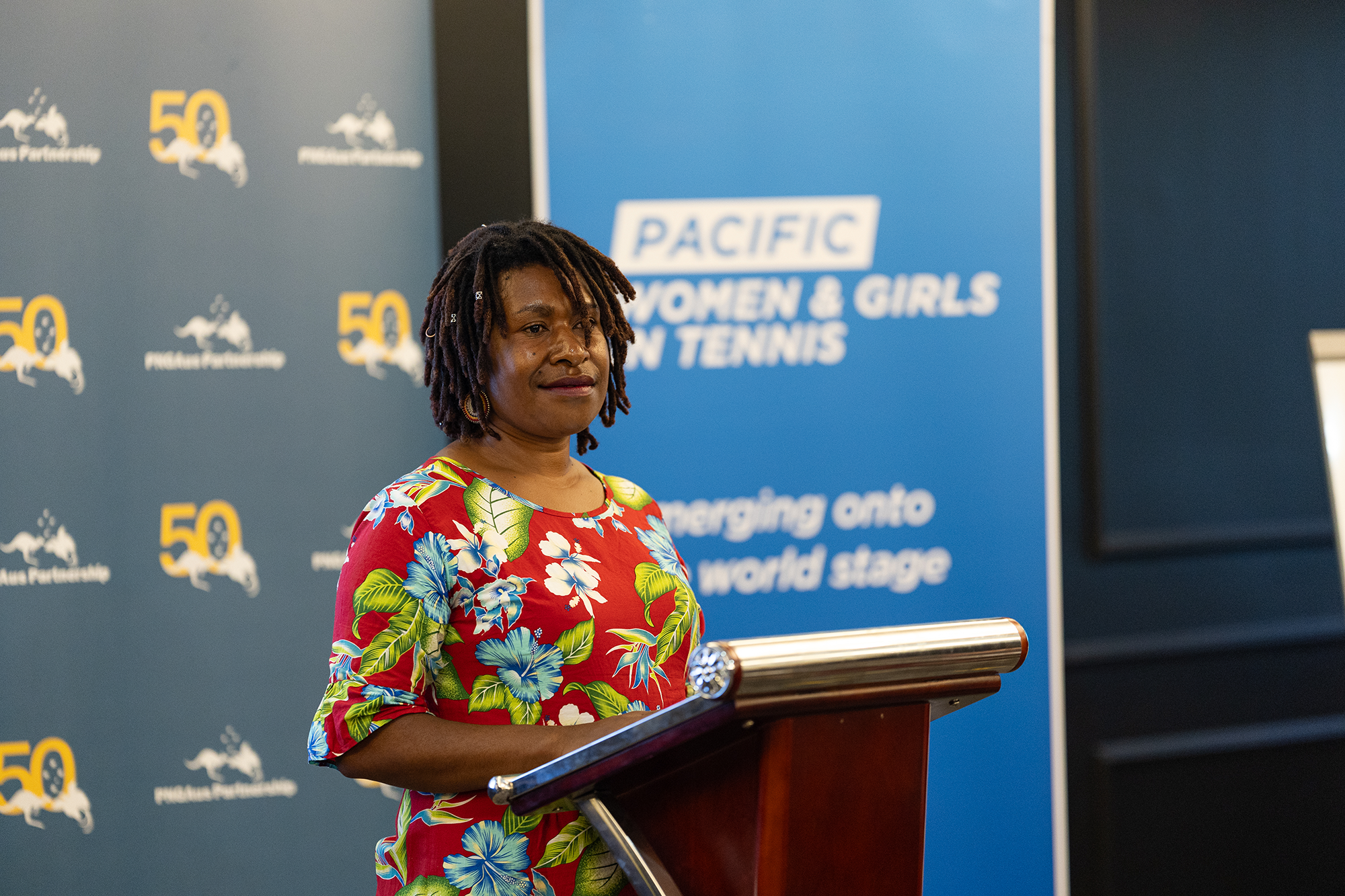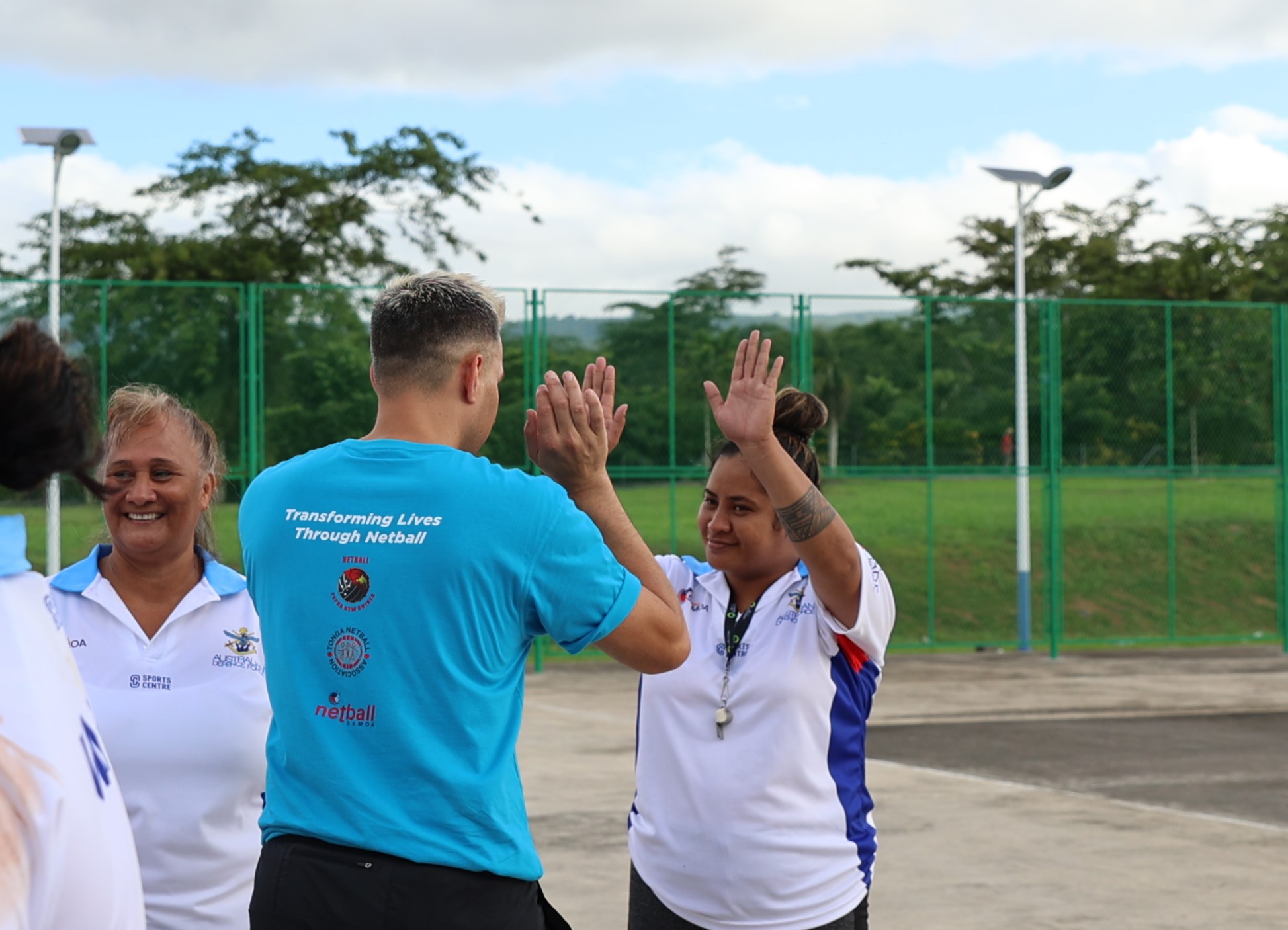Six Pacific table tennis players took their game to the next level at the 2025 Auckland Open, after a week of high-performance training as part of the Oceania Talent Team initiative.
Supported by PacificAus Sports in partnership with the Australian Olympic Committee (AOC) and the International Table Tennis Federation (ITTF) Oceania, the initiative brought together some of the region’s most promising table tennis athletes. The team took part in an intensive five-day camp followed by two days of competition at the prestigious New Zealand tournament.
For the athletes – Sharky Itaia of Nauru, Geoffrey Loi and Tammi Agari of Papua New Guinea, Joshua Yee of Fiji, Tracey Mawa of Vanuatu, and Maria Poila of the Cook Islands – the week was about more than competition. It was a chance to sharpen skills, build support networks, and take meaningful steps on thier individual journeys to competing on the world stage.
Building skills, unlocking potential
The squad trained under the guidance of ITTF-Oceania Development Officers Ocean Belrose and Hongbo Liang, who emphasised the technical, tactical and mental dimensions of elite competition.
“I am very pleased with the players’ commitment during the training camp, and their participation in both the camp and the Auckland Open has given them valuable knowledge and international experience,” said Belrose. “It has been a real pleasure to coach them throughout this week.”
For Liang, who coached the Australian national table tennis team before taking up this role with the ITTF, the camp highlighted the depth of talent already present across the region.
“There is definitely untapped potential in Oceania,” he said. “Our players face difficulties … with the cost of travel and geographic isolation providing significant barriers. We need to continue to invest in their development if we are to lift the level [of the game] throughout Oceania. I hope this trip has provided the players with a great experience – and that they return home motivated to take the next step in their sporting journey.”
Strong partnerships for Pacific sport
The Oceania Talent Team reflects the strength of the support being provided by the Australian Government, through PacificAus Sports, to sporting organisations across the Pacific. By creating pathways to high-level competition, these partnerships help ensure that Pacific athletes are not just competing — but thriving — on the international stage.
Mark Arbib, CEO of the Australian Olympic Committee (AOC), said the initiative demonstrated the power of long-term collaboration.
“The AOC is proud to support developing sporting pathways across the Pacific,” he said. “These initiatives aim to provide opportunities and foster long-term competitive capacity for athletes throughout the Pacific. We’re especially grateful to ITTF-Oceania for their leadership in bringing the Oceania Talent Team to Auckland, an invaluable experience that will help athletes on their journeys towards LA 2028 and Brisbane 2032.”
ITTF-Oceania CEO Scott Houston echoed this sentiment.
“We are thrilled to be partnering with the Australian Olympic Committee and PacificAus Sports, and we are appreciative of the AOC having faith in us to launch this Oceania Talent Team initiative,” he said.
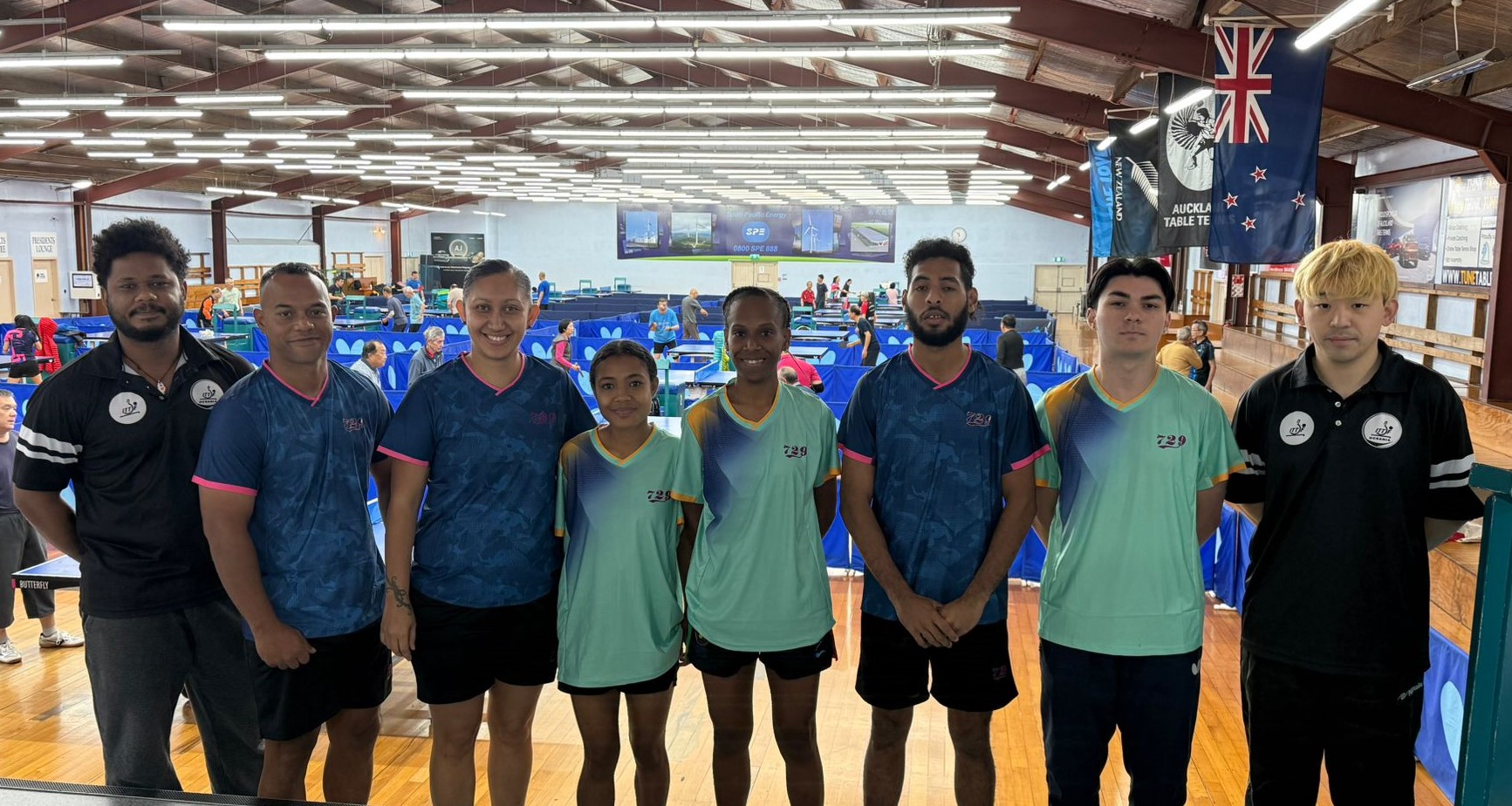
Athlete experiences: growth, pride and opportunity
Across nations and experience levels, the athletes of the Oceania Talent Team finished the week with a shared sense of accomplishment. For many, coming from small island nations with limited access to elite facilities, the experience was both eye-opening and inspiring.
“The camp reminded me that, even as an experienced player, there’s always room to improve,” said Sharky Itaia of Nauru. “It gave me exposure to world-class coaching and tactical advice, and most importantly, it opened doors. I now believe that players from Nauru can continue to make their mark in the Oceania table tennis community.”
For others, the camp was a turning point that highlighted both the gaps and the possibilities. Maria Poila from the Cook Islands reflected on how the intensive sessions exposed her to techniques and strategies she hadn’t encountered at home.
“Before attending, I believed I was performing well, but the exposure to international-level athletes quickly revealed the gap between where I was and where I needed to be,” she said.
Seasoned athletes, like Vanuatu’s Tracey Mawa, found the camp validated years of dedication while positioning them for future opportunities.
“Being involved in this training camp shows that all my hard work has been recognised,” she said. “It positioned me on a recognised and supported pathway, and it opened doors to events that were previously out of reach. I believe this could lead to even bigger events like the Oceania Championships, World Championships, and maybe even the Olympic Games!”
Exposure to peers from across Oceania was another invaluable aspect. Fiji’s Joshua Yee said training alongside athletes from other nations provided fresh perspectives and helped him identify areas for improvement he hadn’t noticed before. Meanwhile, for Papua New Guinea’s Tammi Agari and Geoffrey Loi, the experience was about both pride and responsibility — representing their country on a bigger stage and bringing lessons back to the next generation.
“When I get back home I will teach the juniors, the kids, what I’ve learned in this camp,” Loi said.
Rising to the challenge
The training camp and the Auckland Open competition were a reminder that the Pacific has talent, dedication, and ambition — and that with the right pathways, coaching, and support, athletes can continue to rise to the challenges of elite competition.
For PacificAus Sports, in partnership with ITTF-Oceania and the Australian Olympic Committee, initiatives like the Oceania Talent Team show how targeted opportunities can make a real difference, helping athletes refine their skills, gain international experience, and return home inspired to push themselves and their communities forward.
For the athletes, the lessons learned, connections made, and confidence gained will resonate for years to come — a tangible example of how Pacific talent, nurtured and supported, can thrive on the world stage.


